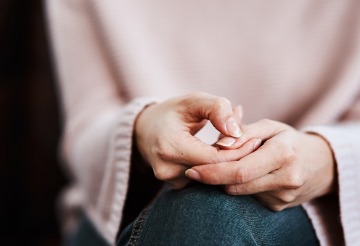

More than half of adults support raising the UK’s legal drinking age to 21 to help reduce the burden on the NHS and society at large of ‘binge drinking’, according to a poll.
New research by the Priory[i], the mental healthcare and addiction specialists, found that 56% of adults think the UK legal drinking limit should be 21, the same as it is in the US. A third (34%) disagreed with this opinion.
Support for raising the drinking age to 21 rose to 65% among those surveyed who lived in London.
Who are the worst binge drinkers in Europe?
These findings come after a report by the World Health Organisation found teenage girls in the UK are some of the worst binge-drinkers in Europe.
England, Wales and Scotland were placed in three of the top six places in a drinking league table of 36 European nations for adolescent girls.
University of St Andrews’ scientists compared the alcohol intake of 15-year-old girls and boys between 2002 and 2014, and the report comes despite binge-drinking rates among British youngsters dipping in recent years. Dr Zsuzsanna Jakab, regional director for WHO Europe, said: “Young people are regular drinkers at an age where they should not be drinking at all.”
The WHO findings were underlined by Office for National Statistics’ figures which showed that while those aged 16 to 24 years were the least likely to say they drank in the week prior to interview, when they did drink they were the most likely to binge on alcohol, something that was true for both sexes.
Its researchers said the generally higher levels of binge drinking among those aged 16 to 24 years could be due to “those who tend to drink excessively on Friday or Saturday nights”. Binge drinking is defined as males who exceed eight units of alcohol on their heaviest drinking day, and females who exceed six units on their heaviest drinking day.
Do parents’ drinking habits influence their children?
Priory’s poll found that almost half of respondents - 49% - think the Government should consider issuing advice to parents about the effects of drinking alcohol in front of their children. Adults in London (62%) and the North East (57%) were most likely to be in support of the Government issuing parental advice; adults in these regions were also the most likely to say they had been influenced by their parents’ drinking habits to drink less than their parents (65% in London and 44% in the North East).
Among the under-35s, 62% said the Government should issue advice to parents, compared to 46% of 35 to 54-year-olds and 44% of over-55s.
What constitutes binge drinking?
Most people do not know that binge drinking[ii] can consist of drinking just two large glasses of wine - two (250ml) glasses of wine, at 13.5% ABV = 6.8 units) – quickly in one session. The Department of Health’s limits – which came into effect in January 2016 – stated that both men and women should drink no more than 14 units in a week. Previously the guidelines were 14 units of alcohol a week for women and 21 for men.
Dr Paul McLaren, medical director of Priory’s Hayes Grove Hospital, a specialist in treating alcohol dependence, said: "The poll findings are very interesting and show that the public might welcome a fresh debate about drinking age limits.
“Hazardous drinking continues to be a problem. Many millennials are health-conscious young adults who are looking to alternatives to drinking, and moderating their intake, but we've also got pockets of the population carrying on binge-drinking patterns.
“Some learn their drinking habits at university or college but we know that alcohol consumption interferes with early adult brain development, so the potential for chronic problems such as greater vulnerability to addiction, dangerous risk-taking behaviour, reduced decision-making ability, memory loss and depression, is greater.”
The United States has one of the highest minimum legal drinking ages in the world, at 21. Along with Iceland, Japan, and South Korea, it is one of just a few developed countries to have a minimum legal drinking age over 18. Potentially, a new limit in the UK could be applicable to pubs, clubs, supermarkets and off-licences, making it significantly more difficult for young people to regularly drink alcohol.
Dr McLaren said: “People underestimate the personal costs of drinking alcohol to excess especially among young people - but there are costs to society in terms of NHS A&E admissions, and road and other accidents, and we all know about the ‘booze buses’ which operate in large cities at weekends.”
There have been calls in Australia to raise the legal drinking age, with Australian doctors and academics calling on the Government there to raise the legal drinking age to 21 in order to reduce the harm associated with early heavy drinking. Raising the drinking age to 20 was also one of a raft of recommendations to government from some of New Zealand’s leading doctors, in order to reduce the harm of alcohol.
[i] An online survey was conducted by Atomik Research among 1,003 adults aged 18+
[ii] The NHS defines binge drinking as “drinking lots of alcohol in a short space of time or drinking to get drunk”. UK researchers commonly define it as consuming more than six units of alcohol in a single session for men and women, with six units equivalent to drinking between 2-3 standard glasses (between 350-525ml) of 13% strength wine, and around 3 pints of 4% strength beer. The definition used by the Office of National Statistics for binge drinking is having over eight units in a single session for men, and over six units per women.



